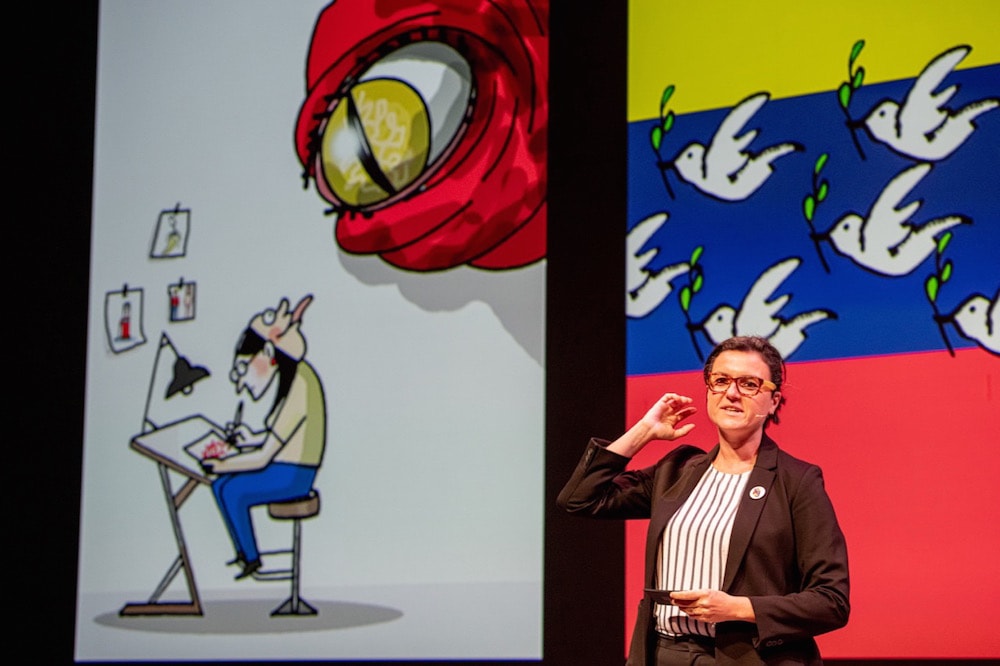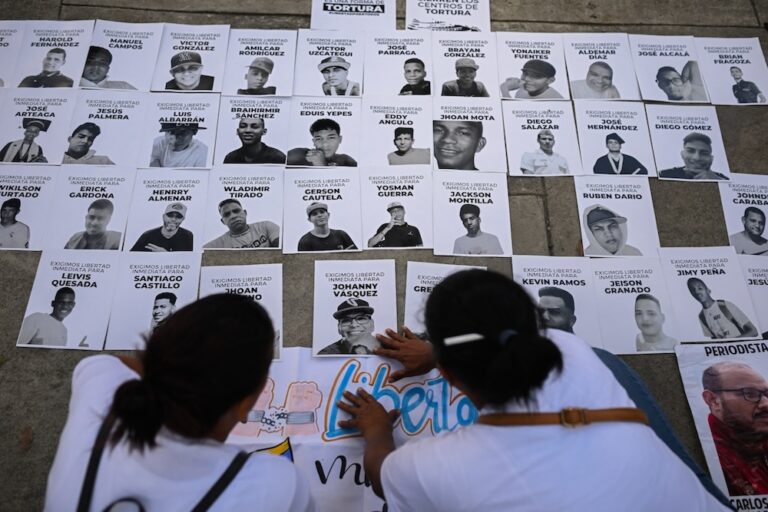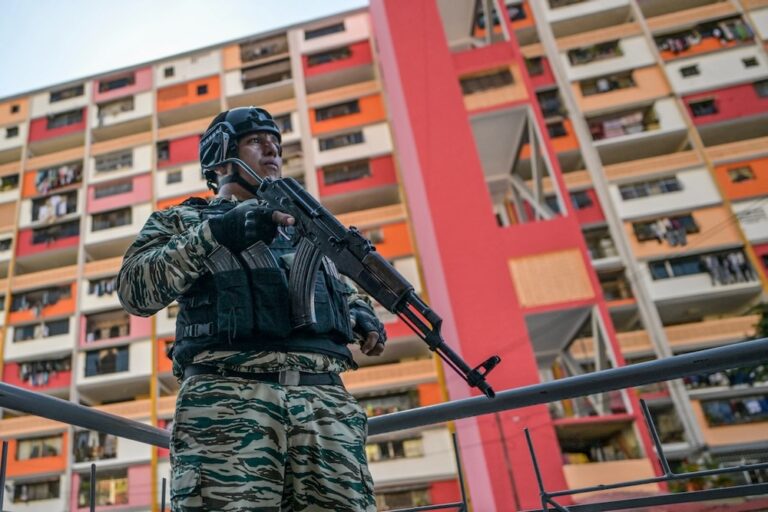Rayma Suprani has had a long career as a hard-hitting political cartoonist, having worked at Venezuela's oldest and largest circulation newspaper, "El Universal", for 19 years before she was fired in September 2014.
In an interview just after she was fired from El Universal, Rayma told a local radio station: “We’ve become a country where if you say things, have your own criteria and try to provoke reflection, it’s not well viewed”
In Venezuela, where, even after his death, criticism of President Hugo Chávez and his policies can result in a harsh backlash, cartoonist Rayma Suprani has not been deterred from producing hard-hitting, scathing images, work that has led her to be fired and to live under the shadow of constant threat and intimidation.
Suprani has had a long career as a cartoonist, having worked at Venezuela’s oldest and largest circulation newspaper, El Universal, for 19 years before she was fired in September 2014. Just hours before she was fired, the paper had published her cartoon depicting President Chávez’s signature on a heart monitor screen – flatlining – with the caption “Health in Venezuela”.
The Guardian, reporting on the dismissal, explained that Suprani’s image touches on two sensitive topics: the legacy of President Chávez, who died in March 2013, and Venezuela’s health care system, which has suffered acute shortages of essentials medical supplies as the country has fallen into economic crisis. Even after his death, Chávez’s followers remain an influential and loyal force in the country. His signature has become a sign of their continued allegiance, with some supporters tattooing it on their arms and painting it on buildings.
Suprani is no stranger to threats. Her work has long been vilified by government supporters. In 2011, her cartoon commenting on a new communications cable being laid between Venezuela and Cuba depicting one cable as a noose, led a pro-Chávez official on twitter to threaten her with hanging. The following year the threats escalated after a pro-Chávez talk show host castigated her for her cartoon taking aim at the government’s homeless policy. It depicted a man asleep in a dog kennel with the caption ‘What Housing Plan?’. In March 2013, Suprani was among a number of public figures who came under attack via text messages. She told the Instituto Prensa y Sociedad de Venezuela: “My cell phone started to receive an avalanche of text messages from several numbers, the messages contained personal insults and terrible threats against me, rude comments and slander of a political nature and demonisation of my work as an opinion writer and illustrator”.
In July 2014, two months before Suprani was dismissed, El Universal was bought by a company close to the government. Until the takeover, the newspaper had a reputation for its criticism of Hugo Chávez and his successor, President Maduro, with articles that exposed economic mismanagement, corruption and policies leading to inflation rates that in 2014 had reached 68%. Despite promises that the newspaper’s editorial line would not be changed, several of its outspoken columnists have been fired, and others resigned, complaining of censorship. The newspaper no longer carries as many critical items as it used to, and some of its writers speak of being warned by the newspaper’s editors against covering controversial issues.
Meanwhile, malicious statements in the media, email and internet threats, some accusing her of being a traitor, even a terrorist, remain a feature of Suprani’s life. And yet she has pledged that she will not leave Venezuela.



